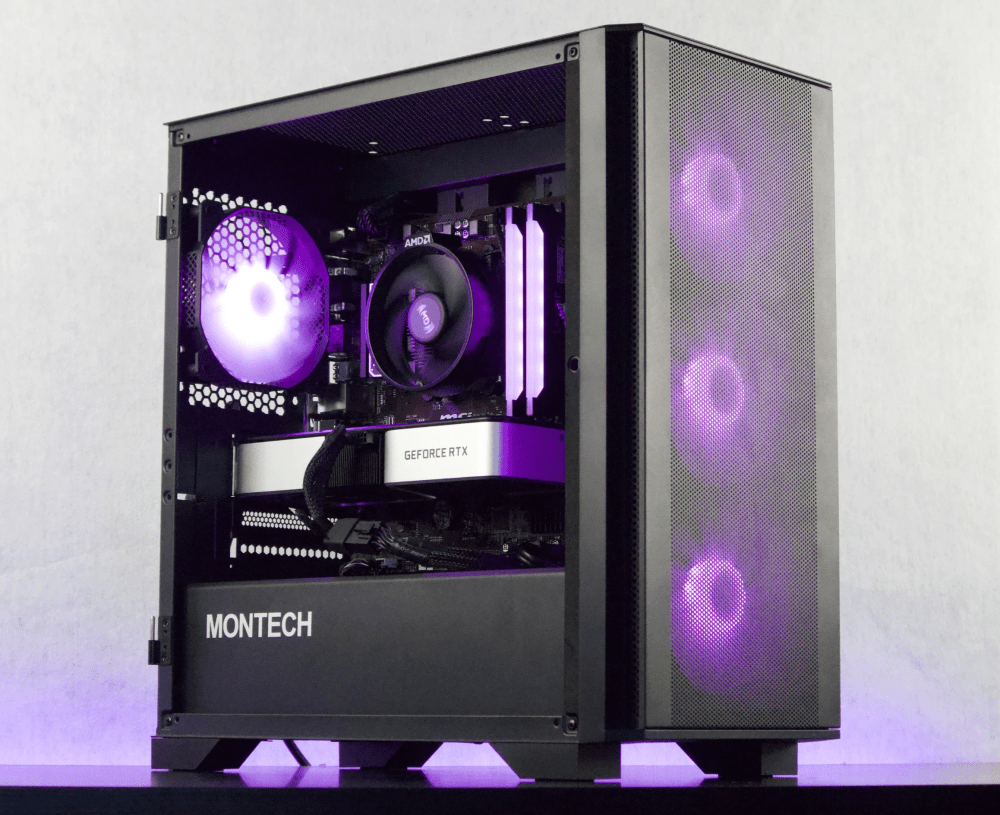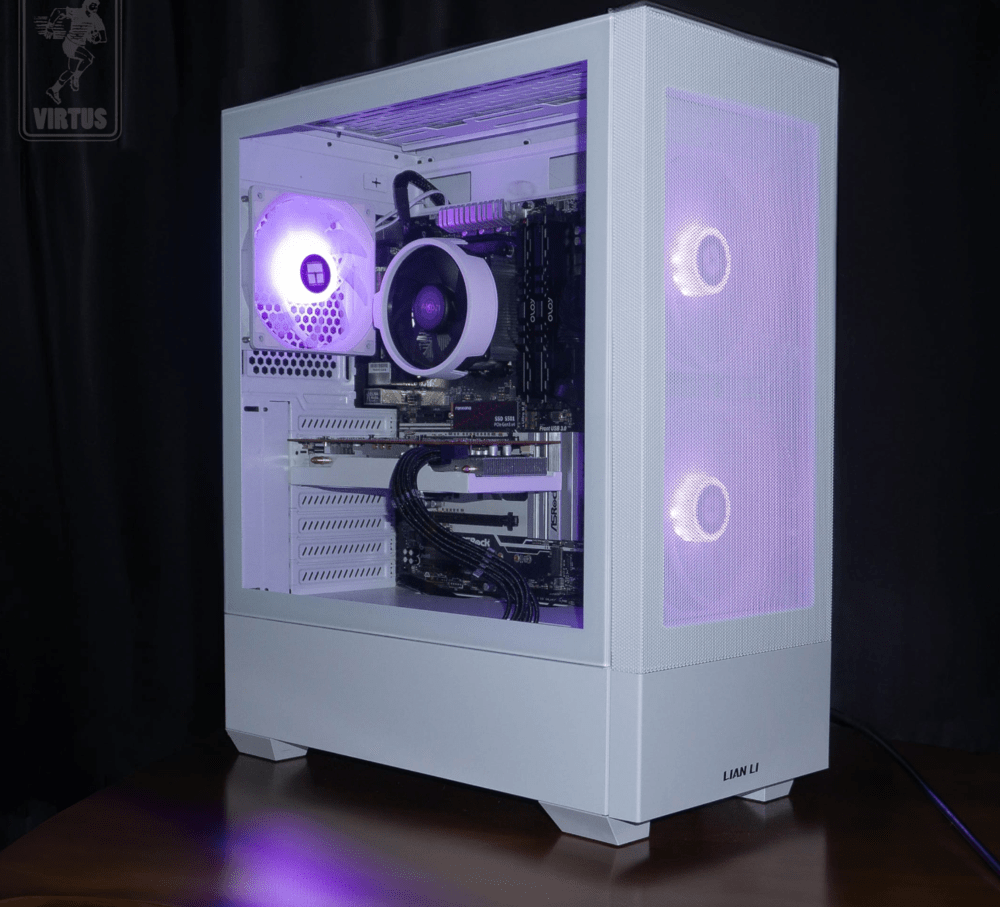Looking to up your game? Check out Jawa for killer deals on new and used gaming hardware.
In the world of computers, performance specifications play a crucial role in determining the capabilities and overall speed of a device. One such specification that often gets mentioned is 'GHz'. But what exactly does 'GHz' refer to, and why is it important? In this blog post, we will delve into the depths of this performance specification and understand its definition, significance, and how it translates to actual performance. Whether you're a tech-savvy individual or someone looking to purchase a new computer, this post will provide you with valuable insights into the world of computer performance. So let's get started and unravel the mystery of 'GHz'!
Introduction: Basic Concepts of Computer Performance
Before diving into the specifics of the 'GHz' performance specification, it is essential to establish a basic understanding of computer performance. Performance, in the context of computers, refers to the speed and efficiency with which tasks and operations are executed.
Computers are composed of various hardware components, such as the processor (CPU), memory (RAM), storage (hard drive or solid-state drive), graphics processing unit (GPU), and more. These components work together to perform calculations, store and retrieve data, and handle various software applications.
The performance of a computer is influenced by multiple factors, including the clock speed of the processor, the amount of memory available, the efficiency of the storage device, and the capabilities of the graphics processing unit. Each of these components contributes to the overall performance of the system, and understanding their roles is crucial in comprehending the significance of the 'GHz' specification.
In the next sections, we will focus specifically on the 'GHz' performance specification, unravel its meaning, explore how it is measured, and discuss its importance in computing. Understanding these concepts will provide a solid foundation for comprehending the impact of 'GHz' on a computer's performance. So let's continue our exploration and delve deeper into the world of 'GHz'!
Understanding 'GHz': Definition and Significance
In this section, we will explore the definition and significance of the 'GHz' performance specification. Let's start by understanding what 'GHz' actually means.
What Does 'GHz' Mean?
'GHz' is an abbreviation for gigahertz, which is a unit of measurement used to quantify the clock speed of a computer's processor. It represents the number of cycles per second that the processor can execute. One gigahertz is equal to one billion cycles per second.
How is 'GHz' Measured?
To measure the clock speed of a processor, manufacturers use a crystal oscillator, which generates electrical pulses at a specific frequency. These pulses regulate the internal operations of the processor. The frequency of these pulses is measured in hertz (Hz), with one hertz representing one cycle per second.
To express higher frequencies more conveniently, the metric prefixes are used. In the case of 'GHz', the prefix 'giga-' denotes a factor of one billion. Therefore, a processor with a clock speed of 2 GHz can execute two billion cycles per second.
Why is 'GHz' Important in Computing?
The 'GHz' specification is a crucial indicator of a computer's performance because it directly influences the speed at which tasks are executed. Generally, a higher clock speed means that the processor can perform more computations in a given amount of time, resulting in faster overall performance.
However, it is important to note that clock speed alone is not the sole determinant of a computer's performance. Other factors, such as the number of processor cores, cache size, and architectural design, also contribute to the overall efficiency and speed of a system. Nonetheless, 'GHz' remains a significant performance specification that helps users gauge the processing power of a computer.
In the next section, we will delve deeper into how a 2 GHz clock speed translates to actual performance, elucidating its impact on processing speed, software compatibility, and various computing tasks. So let's proceed and uncover the intricacies of performance with a 2 GHz processor!
How 2 GHz Translates to Performance
In this section, we will explore how a 2 GHz clock speed translates to performance in a computer system. A 2 GHz clock speed means that the processor can execute 2 billion cycles per second. Let's delve into the various aspects of performance impacted by this clock speed.
Processing Speed and Power
The clock speed of a processor directly affects the speed at which calculations and operations are performed. A higher clock speed, such as 2 GHz, generally implies faster processing capabilities. This means that tasks that require significant computational power, such as running complex software applications, performing calculations, or rendering graphics, can be executed more quickly.
However, it is important to note that processing power is not solely determined by clock speed. Other factors, such as the number of processor cores and the efficiency of the microarchitecture, also play a crucial role in determining the overall performance of a computer system.
Performance Comparison Between Different GHz Ratings
When comparing processors with different clock speeds, it is essential to consider that higher GHz ratings do not always equate to better performance. The performance of a processor is influenced by various factors, including the microarchitecture, cache size, and the specific tasks being executed.
For example, a 2 GHz processor may outperform a 3 GHz processor in certain scenarios if it has a more advanced microarchitecture or a larger cache size. Therefore, it is crucial to consider multiple factors when evaluating the performance of a computer system, rather than solely relying on clock speed.
Impact on Software and Tasks
The clock speed of a processor can have a significant impact on the performance of software applications and specific computing tasks. Certain software applications, such as video editing software or 3D rendering programs, may benefit from higher clock speeds as they require substantial computational power.
Tasks that involve heavy multitasking, such as running multiple applications simultaneously or virtualization, can also benefit from a higher clock speed. A 2 GHz processor can handle these tasks more efficiently, resulting in smoother and faster performance.
However, it is worth noting that not all software applications and tasks are equally reliant on clock speed. Some applications may prioritize other factors, such as GPU performance or memory bandwidth, which can significantly influence overall performance.
In the next section, we will explore other factors that contribute to computer performance, such as RAM, the number of processor cores, the GPU, and the role of the hard drive. Understanding these factors will provide a more comprehensive understanding of how a computer system operates and how it can be optimized for better performance. So let's proceed and uncover the intricacies of computer performance beyond clock speed!
Other Factors Influencing Computer Performance
In addition to the clock speed or GHz rating of a processor, there are several other factors that significantly influence the overall performance of a computer system. In this section, we will explore these factors and understand their impact on performance.
RAM and Its Role in Performance
Random Access Memory (RAM) plays a crucial role in computer performance. RAM is responsible for temporarily storing data that is currently being used by the processor. The amount of RAM available directly affects the system's ability to handle multiple tasks simultaneously and efficiently.
Having an adequate amount of RAM allows the system to store and access data quickly, reducing the need for frequent data transfers between the processor and the storage device. Insufficient RAM can lead to performance bottlenecks, as the system may rely heavily on virtual memory or disk swapping, which are significantly slower than accessing data from RAM.
Importance of the Number of Cores
The number of processor cores is another critical factor that influences computer performance. A processor with multiple cores can execute multiple tasks simultaneously, leading to improved multitasking capabilities and overall system responsiveness.
Multithreaded applications, such as video editing software or virtualization software, can take advantage of multiple cores, allowing for faster and more efficient processing. However, it's important to note that not all applications are designed to utilize multiple cores effectively, and some tasks may still rely heavily on single-threaded performance.
Effect of the Graphics Processing Unit (GPU)
While the CPU primarily handles general computing tasks, the Graphics Processing Unit (GPU) is responsible for rendering and processing graphics-intensive operations. GPUs are particularly crucial for tasks such as gaming, video editing, and 3D rendering.
The performance of the GPU can significantly impact the overall system performance in graphics-intensive applications. A powerful GPU can handle complex visual computations, resulting in smoother gameplay, faster video rendering, and more realistic graphics.
The Role of the Hard Drive
Although often overshadowed by the CPU and other components, the storage device, typically a hard drive or a solid-state drive (SSD), plays a vital role in computer performance. The speed at which data can be read from and written to the storage device directly affects the system's responsiveness.
Traditional hard drives (HDDs) are generally slower compared to solid-state drives (SSDs), which offer significantly faster data transfer rates. Upgrading to an SSD can noticeably improve overall system performance, reducing boot times, and accelerating file access speeds.
In the next section, we will explore ways to optimize a 2 GHz computer for better performance. From choosing the right applications and tasks to upgrading hardware components, we will provide valuable insights on maximizing the potential of a 2 GHz system. So let's proceed and unlock the secrets of optimizing performance!
How to Optimize a 2 GHz Computer for Better Performance
In this final section, we will discuss various strategies to optimize a 2 GHz computer for better performance. While a 2 GHz clock speed may provide a solid foundation, there are several steps you can take to maximize the potential of your system and enhance overall performance.
Choosing the Right Applications and Tasks
Selecting software applications and tasks that are optimized for efficiency can significantly impact performance on a 2 GHz computer. Opt for lightweight applications that have minimal resource requirements. Avoid running multiple resource-intensive applications simultaneously, as this can strain the processor and lead to decreased performance. Prioritize tasks that are well-suited for the capabilities of your system.
Upgrading Hardware Components
Consider upgrading certain hardware components to improve performance. Increasing the amount of RAM can enhance multitasking capabilities and allow for smoother operation of resource-hungry applications. Additionally, upgrading to a solid-state drive (SSD) can significantly improve the system's responsiveness by reducing data transfer times.
However, before upgrading hardware, ensure compatibility with your system and consider seeking professional assistance if necessary. It's important to note that hardware upgrades may not always be feasible or cost-effective, so evaluate your needs and budget accordingly.
Maintaining the Computer's Health
Regular maintenance and optimization can help keep your 2 GHz computer running smoothly. Here are some essential steps to ensure optimal performance:
- Keep the system updated with the latest operating system updates and security patches.
- Perform regular disk cleanup to remove unnecessary files and free up storage space.
- Defragment the hard drive (if using an HDD) to optimize file access speed.
- Run regular antivirus scans to detect and remove any malware that may be affecting performance.
- Manage startup programs to minimize the number of applications running in the background.
- Keep the system physically clean by regularly removing dust and debris from fans and vents.
By following these maintenance practices, you can help ensure that your 2 GHz computer operates at its best potential and maintains consistent performance.
As we conclude this blog post, it is important to remember that while clock speed is a significant factor in determining performance, it is not the sole indicator. Various other factors, such as RAM, the number of processor cores, GPU capabilities, and storage speed, contribute to the overall performance of a computer system.
Understanding these factors and implementing optimization strategies can help you maximize the performance of your 2 GHz computer and ensure a smooth and efficient computing experience.
We hope this comprehensive guide has provided valuable insights into understanding the 'GHz' performance specification and its impact on computer performance. Armed with this knowledge, you can make informed decisions when purchasing or optimizing a computer system. Happy computing!





